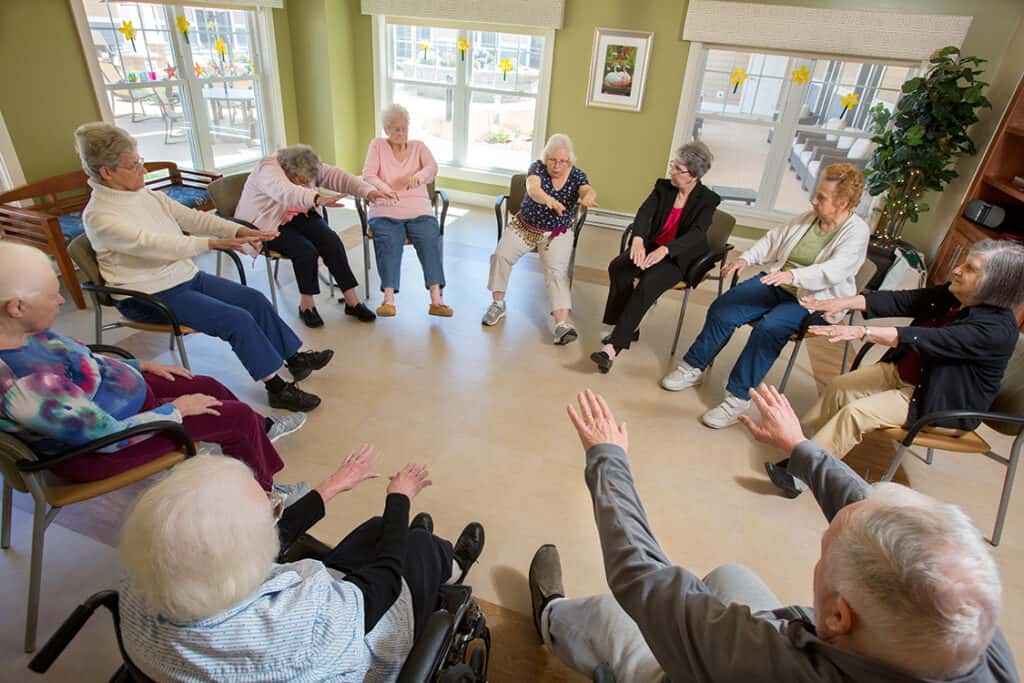Understanding Exactly How Assisted Living Sustains Patients With Mental Deterioration Treatment Needs
Aided living facilities are increasingly recognized for their essential function in dealing with the complex treatment demands of clients with dementia. By supplying an organized yet supporting setting, these facilities not just advertise safety and security and health but additionally cultivate a sense of autonomy through individualized care plans.
Summary of Dementia Treatment
Mental deterioration care is significantly vital as the occurrence of dementia-related conditions increases among maturing populations. This expanding market trend requires a thorough understanding of mental deterioration and the numerous strategies to care. Mental deterioration includes a range of cognitive impairments that interfere with life, affecting memory, thinking, and communication capabilities. The condition can differ substantially in its discussion, requiring tailored care approaches to meet individual needs.
Reliable mental deterioration care includes a multidisciplinary technique, including medical, mental, and social support. Health care specialists, caretakers, and member of the family have to team up to develop a caring setting that promotes the wellness of people with dementia. Secret elements of mental deterioration treatment consist of customized care plans, cognitive stimulation therapies, and behavior treatments focused on enhancing lifestyle.
Additionally, it is vital to acknowledge the emotional and mental challenges dealt with by both patients and caretakers. Education and learning and training for caretakers play a critical role in promoting understanding and empathy, consequently enhancing interactions with those affected by dementia. As the need for mental deterioration treatment remains to climb, the emphasis should remain on supplying compassionate, person-centered treatment that appreciates the self-respect and choices of people living with this problem.
(Dementia Care Charlotte)
Function of Assisted Living Facilities
Helped living facilities play an important duty in giving look after people with mental deterioration, using a helpful atmosphere that balances self-reliance with the required assistance. These facilities are made to satisfy the unique needs of residents, advertising a feeling of area while ensuring security and health.
In an assisted living setting, experienced staff members supply 24/7 support, aiding with everyday tasks such as showering, clothing, and drug management. This degree of care is crucial for individuals with dementia, who might battle with these jobs due to cognitive decrease. Furthermore, facilities often include memory-enhancing programs and social activities tailored to stimulate cognitive functioning and motivate social interaction.
The physical setting of assisted living facilities is likewise enhanced for safety and security, featuring secure entryways, well-lit paths, and clear signage to aid locals browse their surroundings. Furthermore, these areas promote a sense of belonging, lowering the feelings of seclusion that people with mental deterioration may experience.
Personalized Care Plans
To make certain that each resident obtains one of the most appropriate care, customized treatment plans are important in nursing home for people with dementia. These plans are tailored to fulfill the distinct requirements, choices, and challenges dealt with by each homeowner, advertising their dignity and lifestyle.
The development of an individualized treatment plan usually begins with an extensive evaluation performed by medical care specialists. Assisted Living. This evaluation reviews the individual's cognitive abilities, physical health, psychological health, and social choices. Input from relative and the resident themselves is essential, as it supplies useful understandings into their history, routines, and individual interests
Once the assessment is total, a multidisciplinary team works together to produce a care strategy that details particular goals and treatments. This may include drug administration, daily living assistance, and behavior approaches customized to alleviate stress and anxiety or anxiety.
Normal testimonials and updates to the treatment strategy ensure it continues to be appropriate as the person's condition develops. Assisted Living. By prioritizing customized care, assisted living facilities can boost the general wellness of citizens with dementia, fostering an environment that appreciates their uniqueness while addressing their care requires successfully
Involving Activities and Socialization
Involving activities and socializing play a vital duty in boosting the high quality of life for residents with dementia in nursing home. These tasks are created to promote cognitive feature, advertise psychological health, and foster connections among citizens. Structured programs, such as art therapy, music sessions, and memory therapy, provide opportunities for people to express themselves artistically while likewise activating positive memories.
Socializing is equally essential, as it battles sensations of seclusion and solitude that can go along with mental deterioration. Team activities, consisting of games, team outings, and common dining, urge interaction and aid homeowners develop encouraging connections with peers and caretakers. This sense of area not just improves their daily experiences yet also adds to an extra stable psychological setting.
Additionally, involving activities can be tailored to specific preferences and cognitive levels, ensuring that each citizen can get involved meaningfully. By creating a setting that prioritizes engagement and social communication, aided living centers can dramatically improve locals' general psychological wellness, fostering a sense of objective and belonging. Inevitably, these initiatives are vital parts of comprehensive dementia care, substantially influencing homeowners' general wellness and joy.
Advantages of Area Assistance

Furthermore, community assistance promotes social communication, which is important for cognitive and emotional health. Involving with peers and joining group tasks can boost mood and urge reminiscence, adding to a higher feeling of belonging. This social involvement is essential, as isolation and seclusion can intensify cognitive decrease.

(Charlotte Alzheimer's Care)
Final Thought
In verdict, assisted living facilities serve as crucial atmospheres for people with dementia, supplying structured support that promotes both self-reliance and security. The application of individualized care strategies ensures that each resident's unique needs are satisfied, while engaging activities advertise social communication and cognitive interaction.